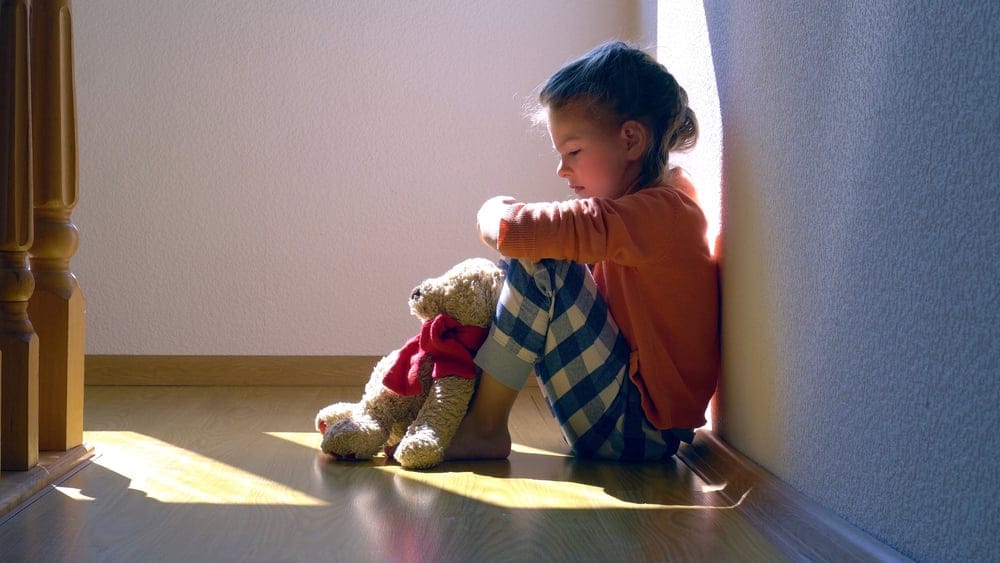Childhood experiences profoundly shape us, particularly because they lay the foundation for our adult behaviors, habits, and emotional responses. While not all negative traits are the result of a difficult childhood, certain patterns do indicate that someone might have faced significant challenges during their formative years. Here are just a few to look out for.
1. Difficulty Trusting People

People who grew up in unstable or unpredictable environments may find it hard to trust people. This lack of trust can manifest in relationships as skepticism, fear of betrayal, or reluctance to open up emotionally. They’re used to being disappointed or hurt by people who were meant to care for them, so they’ve come to expect it these days.
2. Extreme self-reliance

Experiencing neglect or having to fend for yourself at a young age can lead to extreme self-reliance as an adult. While independence is generally positive, not being able to ask for help when they need it or rely on other people can make their life so much harder and leave them feeling isolated, overwhelmed, and utterly drained.
3. Intense Need for Control

A chaotic or uncontrollable childhood environment might result in an adult who tries to control every aspect of their life, from their daily routine to their relationships. This need for control can stem from a deep-seated fear of unpredictability and their desperate desire to avoid ever being in that position again. It’s understandable, of course, but still really sad (and difficult for the people around them to deal with).
4. Emotional Withdrawal or Volatility

Traumatic childhood experiences can affect emotional regulation, leading the person who went through them to withdrawal or be emotionally volatile. They might shut down or compartmentalize their feelings to protect themselves or have disproportionate emotional reactions to triggers or things that stress them out.
5. Perfectionism and Fear of Failure

Children who grew up in environments where there was a high demand for success or where love and attention were conditional upon achievements often turn into perfectionistic adults. This can include an intense fear of failure or making mistakes. They’re often their own worst critics and tend to be super hard on themselves, with unrealistic expectations.
6. Chronic Self-doubt

A lack of positive reinforcement or emotional support during childhood can result in an adult who really doesn’t trust their instincts or believe in their abilities. They might constantly question their worth, decisions, and abilities, regardless of their achievements, and they also tend to experience imposter syndrome when they do achieve.
7. Oversensitivity to Criticism

For someone who experienced harsh criticism, neglect, or abuse during childhood, even constructive criticism in adulthood can feel deeply personal and hurtful. This hypersensitivity can stem from a history of being undervalued or demeaned. They don’t realize that the feedback they’re receiving may be coming from a genuinely good and caring place.
8. Avoidance of Intimacy

People who experienced trauma or neglect in their early years might shy away from close relationships or intimacy as adults. This avoidance can stem from a deep-seated fear of being hurt, abandoned, or betrayed. This refers to intimacy of all types: physical, emotional, etc. Depending on what they went through, letting their guard down enough to get close to another person can feel all but impossible.
9. Hyper-vigilance

A childhood marked by unpredictability or danger can lead to an adult who’s constantly on alert, even in situations in which it’s really unnecessary or even a bit strange. This hyper-vigilance is a survival mechanism, where the person is always bracing for potential threats or harm that will never come. It’s no way to live!
10. Difficulty Expressing Needs

Growing up in an environment where their needs were consistently ignored or unmet can result in adults who struggle to express their needs or desires, often because they’ve learned to suppress them to avoid disappointment. They don’t bother to ask for the things that would make them happier, healthier, or more fulfilled because they don’t even entertain the idea that they’re possible.
11. Disproportionate Guilt or Shame

Experiencing excessive criticism, blame, or punishment during childhood can instill a deep sense of guilt or shame in a person, making them prone to feeling responsible for things beyond their control. As a result, they often take on the burdens of other people’s actions and might even over-apologize for things that aren’t their fault.
12. Attachment Issues

Difficult childhoods, especially those involving inconsistent caregiving, can lead to attachment issues in adulthood. This might manifest as either clingy behavior (anxious attachment) or a tendency to keep others at a distance (avoidant attachment). Working with a licensed therapist can help them process these experience so they can develop a more secure attachment style.
13. Overwhelming Fear of Abandonment

Those who faced abandonment or significant loss in their early years might carry an overwhelming fear of being abandoned again, which can affect their relationships and how they interact with other people. They might not even try to get into relationships for fear of being left behind, which robs them of the joy of true companionship.
14. Compulsive People-pleasing

A desire to constantly please everyone else, often at the expense of their own needs, can stem from an upbringing where love and attention were conditional or where the child felt they had to earn affection. They bend over backward for people, often at the expense of their own well-being.
15. Substance Abuse or Other Addictive Behaviors

While not exclusive to those with difficult childhoods, a tendency toward substance abuse or other addictive behaviors can sometimes be a coping mechanism for underlying trauma or emotional pain from their early years.
16. Fear of Conflict

An extreme aversion to conflict or confrontation can be rooted in a childhood where conflict was dangerous or traumatic. As a result, they might go to great lengths to avoid disagreements or assertiveness. This means they’re often walked all over because they won’t dare call someone out who wronged them.
17. An Overdeveloped Sense of Responsibility
Children who had to take on adult responsibilities prematurely, or who were made to feel responsible for their family’s well-being, might develop into adults with an exaggerated sense of responsibility, often feeling burdened by the need to take care of other people.
Enjoy this piece? Give it a like and follow Bolde on MSN for more!




